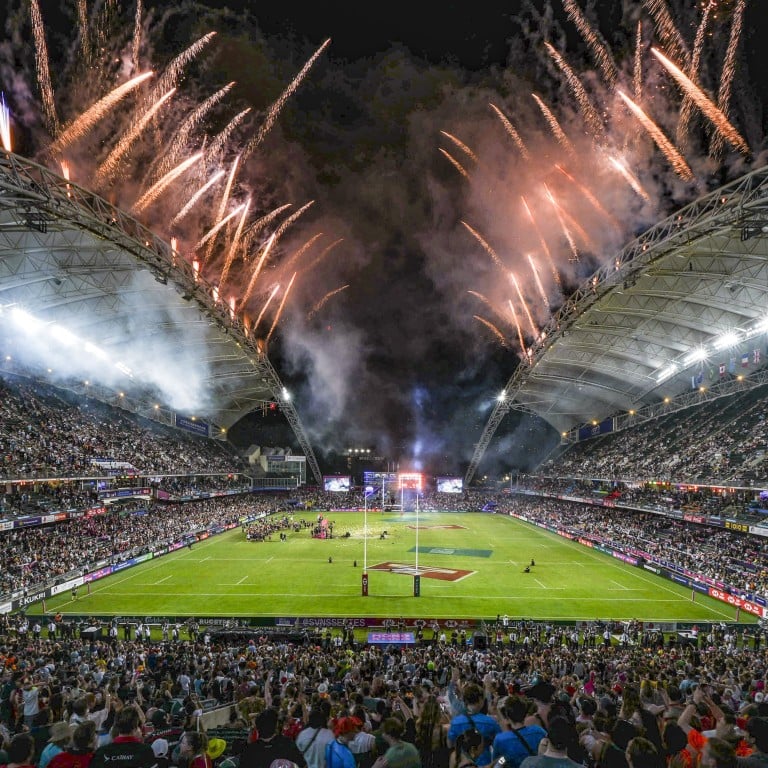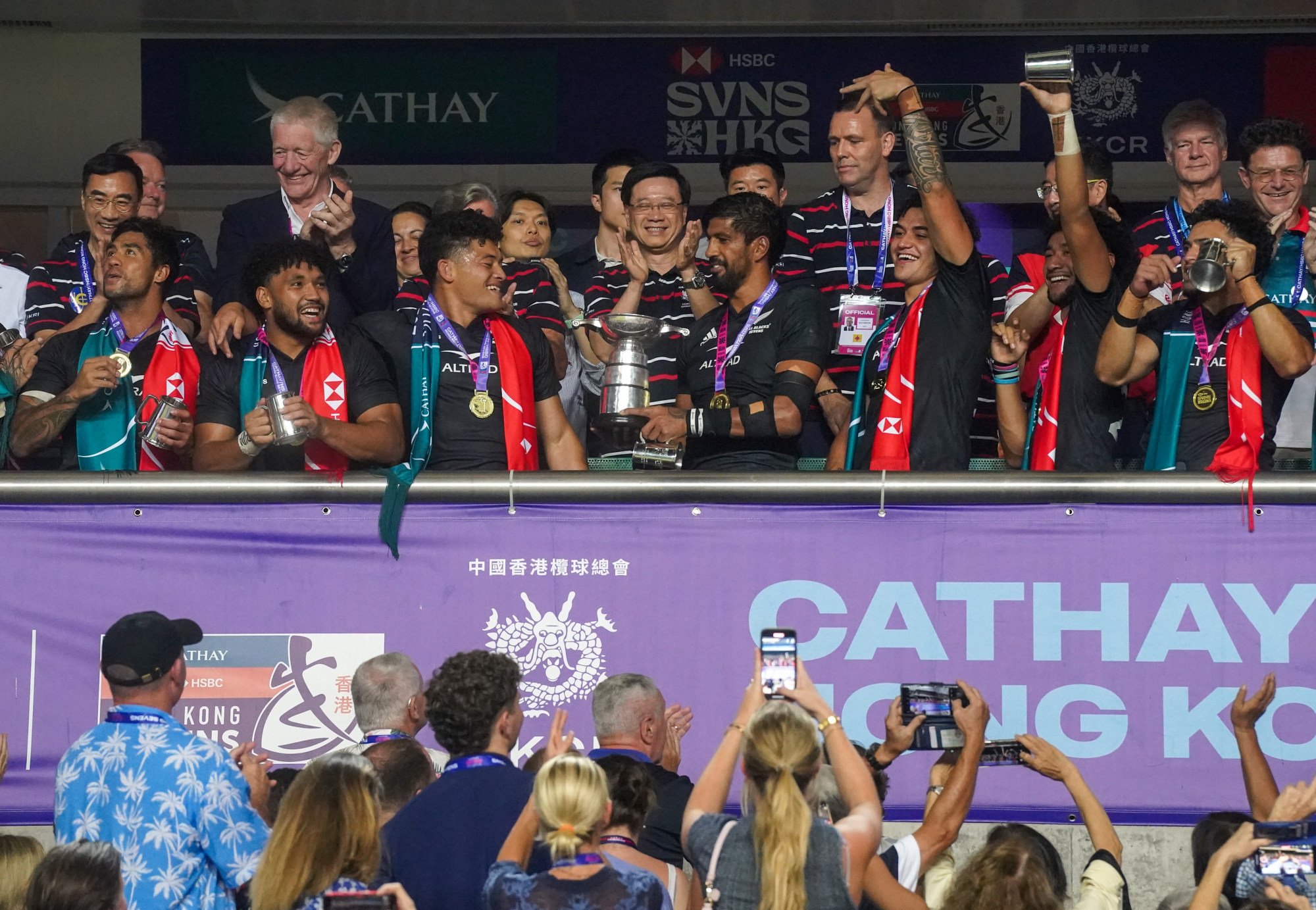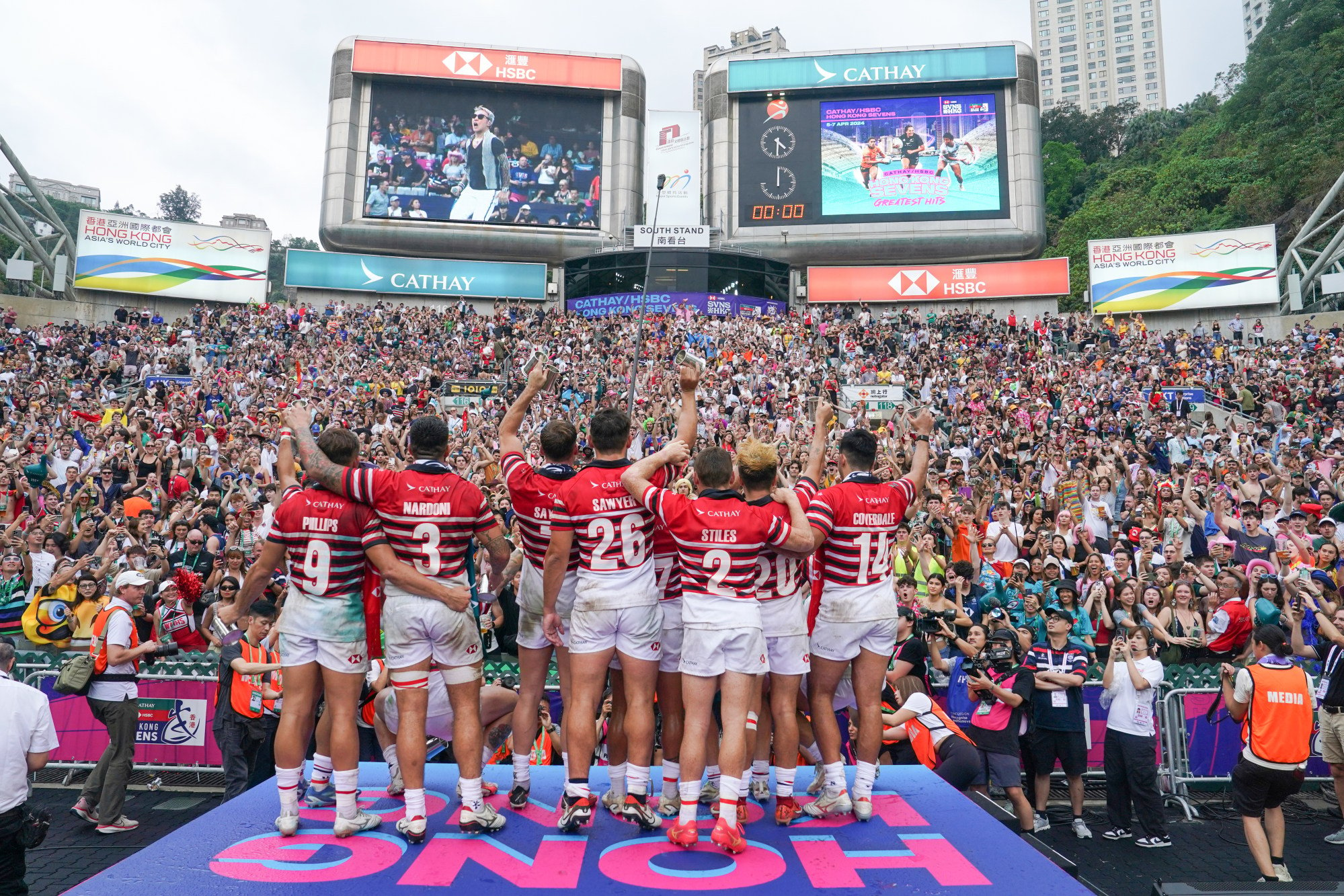
Hong Kong Sevens ends with a bang as Kiwis seal back-to-back wins, and World Rugby chief hails ‘jewel in sport’s crown’
- New Zealand’s men and women successfully defend titles as Sevens ends 42-year association with Hong Kong Stadium
- More than 100,000 people pass through venue’s gates over the course of three days, with sports minister calling it ‘a beautiful business card’ for city
The Hong Kong Sevens closed in a barrage of fireworks and confetti on Sunday, as New Zealand’s men and women successfully defended their titles and a sell-out crowd sang themselves hoarse for the final time at the sport’s spiritual home.
Expected to move to Kai Tak Sports Park next year, city leader John Lee Ka-chiu said this weekend’s tournament at Hong Kong Stadium, its home in various guises since 1982, had taken on a “special significance”.
In a Facebook post, Lee called the Sevens a showcase for “the vibrant and dynamic side of the city to the world, solidifying its reputation as a city of major events”.
And while the chief executive highlighted the “tangible economic benefits” to the city from a tournament that brought in thousands of overseas visitors, he also got to witness the reason the Hong Kong Sevens is consider the best in the world in a sporting sense.
A smiling Lee was on hand to the present the trophy to the All Blacks, who have a Chinese connection through squad member Tone Ng Shui, after their gripping 10-7 victory over France, and so experienced an electric atmosphere that would not have been out of place at any world-class sporting occasion.

New Zealand’s women were more emphatic in their 36-7 win over the USA, which player of the match Michaela Blyde, who ran in a hat-trick of tries, called “really special”.
The home fans had plenty to shout about too, with Hong Kong’s men, powered by Fong Kit-fung, comfortably beating Japan 22-10 to win their Melrose Claymore competition.
And while the city’s women lost 24-10 to China, a result greeted by a predictable chorus of boos, their performances over the three days will have won them a new generation of fans.
Sports minister Kevin Yeung Yun-hung was among the dignitaries, politicians and business leaders who attended, and in a Facebook post he called the event “a beautiful business card for Hong Kong”.
Yeung was also taken by the costumes and entertainment on hand, which on Sunday consisted of an energetic set by Journey frontman Arnel Pineda.
Organisers said some 101,000 people had passed through the gates over the course of the three days, and businesses in the area reported a 40 per cent increase in revenue as a result.

And by the time the 34,443 people who attended Sunday’s matches arrived, most of the officials merchandise had long since been sold, with the Hong Kong rep for manufacturer Kukari saying “sales have been very positive, better than 2023”.
Of the tickets sold, around 42 per cent were said to have gone to overseas buyers, a figure World Rugby CEO Alan Gilpin called incredible and something that only emphasised the city’s position as “the jewel in the crown of sevens”.
“There has never been a bigger year for sevens, it has been a really exciting reset for the series, and we’ve seen some amazing rugby, particularly over the past couple of days here,” he said.
Evidence, if it were needed, of Hong Kong’s importance to the sport will be available next month when the final leg of the regular season is held in Singapore.
Crowds in the city state have traditionally been on the small side in comparison, while the raucous atmosphere created by a South Stand that all the players love is unheard of.
Australia’s Madison Ashby, who helped her side come third, echoed many when she said “the crowd here is one of the best in the world, so I love playing here”.
During a press briefing on Sunday, Gilpin said the “amazing weekend” had proved Hong Kong was “definitely back”.
And after a day when the final was proceeded by a rousing rendition of “La Marseillaise”, Gilpin said the challenge was “how do we take the buzz to what will be a spectacular new stadium”.
Not everyone is convinced they can, of course, but Oliver Lopez, a university student from Australia who was born in Hong Kong and first came to the Sevens as a baby, was among those who recognised the need for the move because “this place is too small and only has 40,000 seats”.
Fiji fan Andrew Lupton, who believed he had only missed four events since his first Hong Kong Sevens in 1992, said his best experiences were when he watched Fiji with their “skilful, amazing, free passing”.
The 60-year-old from Scotland said he would miss the convenience of being able to walk to Wan Chai or Causeway Bay for shops and drinks after the Sevens, but was ready for a “different experience”.
“We’ll have to probably take the train across [after they move to Kai Tak], I don’t know if there’s going to be a village or whatever around the new stadium, so I’ll miss walking to Wan Chai to carry on having a beer,” he added.
Chris Brooke, the Hong Kong China Rugby chairman, said while it had been “excellent to welcome so many of our international visitors back to Hong Kong”, the “fantastic weekend” held importance beyond that.
“We fund all of our programmes from the surplus we generate from the Sevens, so it’s absolutely critical for us to have such a successful three days to reinvest into the game in Hong Kong,” he said.

